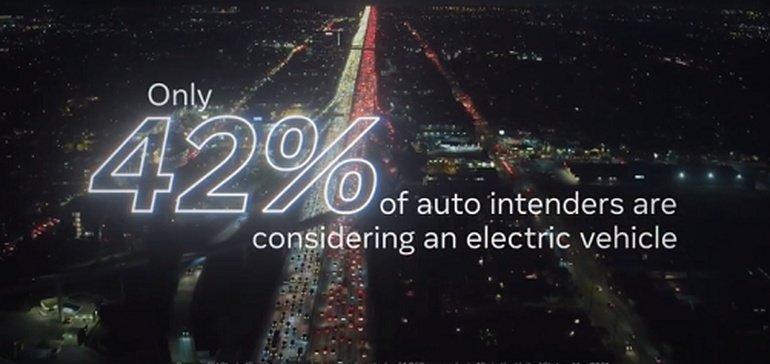Social Media
Meta Shares New Insights into the Key Challenges for Marketers of Electric Vehicles
- By Brett Belau
24 Feb

While interest in electric cars is on the rise among increasingly climate-conscious consumers, there are still some significant barriers that are stopping people from buying an EV.
So what are the key considerations for marketers, and how can you address the right elements to maximize take-up? That’s the focus of Meta’s latest research report on the EV industry, which actually includes some key notes for all marketers across the board.
As per Meta:
“During the pandemic, global English-language conversations about electric vehicles (EVs) grew a staggering 238% on Facebook. But while the conversation trended upward, more than half of auto intenders surveyed aren’t actively considering electric vehicles.”
In order to glean more insight into why EV take-up hasn’t been greater, Meta commissioned a survey of 10,000 people, to get their thoughts on electric vehicles, and their hesitations in buying an electric car.
And while many of the responses are likely what you would expect, they are worth noting for EV marketers, and for other tech innovations which lean into newer, less trusted technologies.
First off, the research shows many auto buyers are indeed considering EVs, with some 42% now at least looking into electric cars.
But even so, actual EV adoption is far lower than this, with a recent report showing that electric cars made up just 4% of American auto sales in 2021, compared with 9% in China and 14% of new sales in Europe.
So what’s stopping these buyers from actually making a purchase, and taking that next step?
According to the data, the barriers for converting potential EV buyers are largely practical, with consumers concerned about battery life-span, travel range, charging infrastructure and cost.
That makes sense, but the data also shows that many people that have some interest in EVs remain distant from the actual buying process, with the majority of respondents having never even been in an electric car.

That suggests that the core messaging around these aspects is not getting through, and Meta says that sellers of EVs need to do better at communicating the benefits around maintenance, performance and the development of infrastructure to support charging needs.
In this sense, practical messaging works best, as opposed to idealism, or sometimes bewildering tech speak.
As per Meta:
“These consumers are far more likely to respond to messaging around pragmatic issues like maintenance costs and safety.”
It’s one thing for Elon Musk to showcase some bizarre-looking silver truck, and tout it as the future, but the realities of owning and operating an EV are far more applicable to the day-to-day consumer.
In essence, Meta’s data shows that, as with the basic principle of all marketing, people buy based on what’s in it for them, not what your brand messaging may be. As such, it’s important for marketers to keep in mind the practicalities, even with newer technological developments – because while it may be great to focus on the benefits for the environment, and that may sway buyers to a degree, the real test is in how it will impact their lives, and the benefits they can gain by buying in.
Even in the midst of the climate crisis, practicality remains the key, which is an important message to highlight when considering how to communicate products or initiatives that also align with a broader purpose.
You can check out Meta’s full EV report here.
Source: www.socialmediatoday.com, originally published on 2022-02-24 13:43:28
Connect with B2 Web Studios
Get B2 news, tips and the latest trends on web, mobile and digital marketing
- Appleton/Green Bay (HQ): (920) 358-0305
- Las Vegas, NV (Satellite): (702) 659-7809
- Email Us: [email protected]

© Copyright 2002 – 2022 B2 Web Studios, a division of B2 Computing LLC. All rights reserved. All logos trademarks of their respective owners. Privacy Policy

![How to Successfully Use Social Media: A Small Business Guide for Beginners [Infographic]](https://b2webstudios.com/storage/2023/02/How-to-Successfully-Use-Social-Media-A-Small-Business-Guide-85x70.jpg)



![How to Successfully Use Social Media: A Small Business Guide for Beginners [Infographic]](https://b2webstudios.com/storage/2023/02/How-to-Successfully-Use-Social-Media-A-Small-Business-Guide-300x169.jpg)


Recent Comments